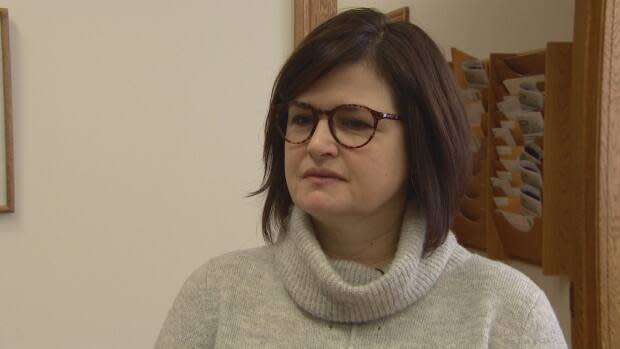Sask. NDP calls on government to expand Occupational Health And Safety provisions to gig, contract workers

More and more Saskatchewan residents— from models, musicians and photographers to Uber drivers — are making a living as contract or gig workers.
These careers do not currently have guaranteed workplace protections under the Occupational Health And Safety (OH&S) provisions portion of The Saskatchewan Employment Act.
The provincial government is currently reviewing this part of the act and will be updating it soon.
In the meantime, the province's Opposition NDP has called on the Saskatchewan Party government to expand protections for all workers, including gig and contract workers.
The NDP wants protections for contract and gig workers experiencing interpersonal violence and sexual harassment to be included. It also wants to see provisions that support workers living with mental illness.
"We know that OH&S regulations must have meaningful and comprehensive changes to reflect the experience of people working today. And I think everyone knows that the very nature of work has been rewritten since the last review of OH&S provisions," said Opposition critic for labour Carla Beck at a news conference in Regina on Thursday.
"We need OH&S provisions that recognize both shifting employer-employee relationships, and that the burdens of work in the 21st century are acknowledged."

Beck said that expanding OH&S standards to include contract and gig workers would decrease workplace violence against women, racialized people and the LBGTQ community.
"I think it should go without saying that all workers deserve a safe workplace. But tragically, this is not the reality in Saskatchewan today."
The NDP said it has been in consultation with contract and gig workers that have seen workplace abuse, exploitation, assault and even trafficking.
"To be clear, mental health is a workplace issue. Sexual harassment is indeed a workplace issue, and domestic violence is a workplace issue," Beck said.
Survey says
In a recent survey by the federal government, 60 per cent of the online survey respondents reported having experienced a form of harassment in the workplace within the last two years.
Thirty per cent of respondents said they had experienced sexual harassment, 21 per cent said they had experienced violence and three per cent that they had experienced sexual violence, according to the federal government.
Ninety-four per cent of respondents who reported experiencing sexual harassment were women. Furthermore, the federal government reported that people with disabilities and members of a visible minority were more likely to experience harassment than those in other groups.

1st-hand accounts
Beck was joined at the news conference by two contract and gig workers from Regina. Both women have experienced sexual harassment and mistreatment in the workplace.
Ariana Donovan began modelling five years ago when she was 16.
"My first experience being signed to an agency was not the best. I was forced to pay $750 for a test shoot before I had even been signed with them at all," said Donovan.
"Because I had been so young in the industry, I thought that was normal. I thought that it was just a fee that you had to pay to be able to sign a contract. And of course, it's not."
Donovan said she was able to book only one job through the agency. After speaking with other models, she found that they had been treated the same way by the agency.
Donovan has now worked as a model in both Vancouver and Regina. She says the risk of harassment and abuse is high.
"You're constantly having to go to these people's houses alone to take photographs. Some of them not even completely clothed," she said. "As a young adult in some stranger's house where you've never met this person ... it's incredibly nerve-racking."

Donovan said her experiences are not unique. She created a "whisper network" — a Facebook group where local Saskatchewan models can warn each other about potential scams from agencies, as well as predatory photographers.
"If these things were to happen at a retail job or something like that, it would be taken way more seriously than it's ever been taken in the modelling industry," Donovan said.
"I think part of that is also because with the fashion industry, it's so sexualised and glamorised that people don't really stop and think about it actually being a career and it actually being an industry."
Regina photographer Jada Reimer is part of Donovan's whisper network. She modelled between the ages of 15 and 19.
"I was made to feel very uncomfortable during a shoot and that's actually one of the reasons I stopped," said Reimer. "A big reason I am doing photography is because I don't want models to feel like this anymore,"
Reimer spoke about being asked to completely undress at a photo shoot. When she said she was not comfortable with the shoot and the photos, she was ignored.
"I hear so many stories of women who have experienced sexual harassment and assault. And it is every single model that comes in, even girls that are just doing it for fun on the side, they are still experiencing this," said Reimer.
"So it is a major thing that we need to look into and change."
Beck said that creative communities like modelling and performance have been extremely impacted by the pandemic.
"Work is hard to come by and that also lends itself to increased vulnerability. So what I think we have here is an opportunity to look at how the nature of work has changed," said Beck.
In the meantime, the province says Saskatchewan residents can provide direct feedback on what changes should be made to the Occupational Health And Safety Provisions until Oct. 18.

